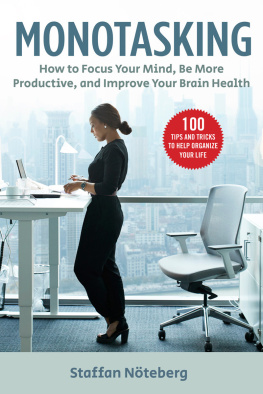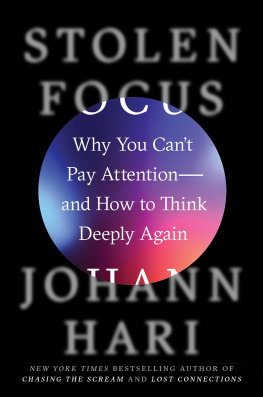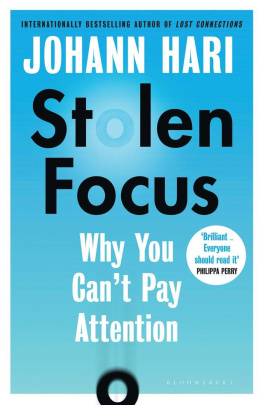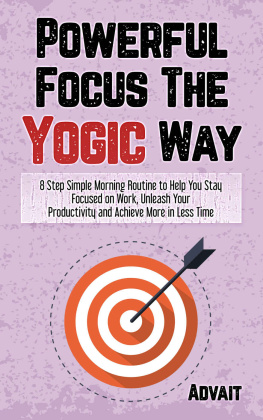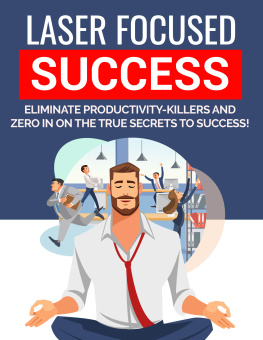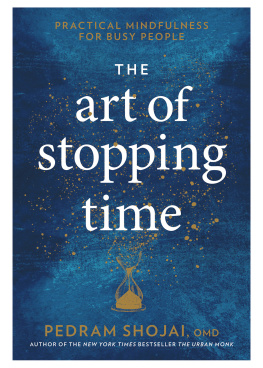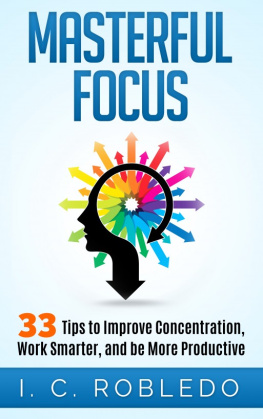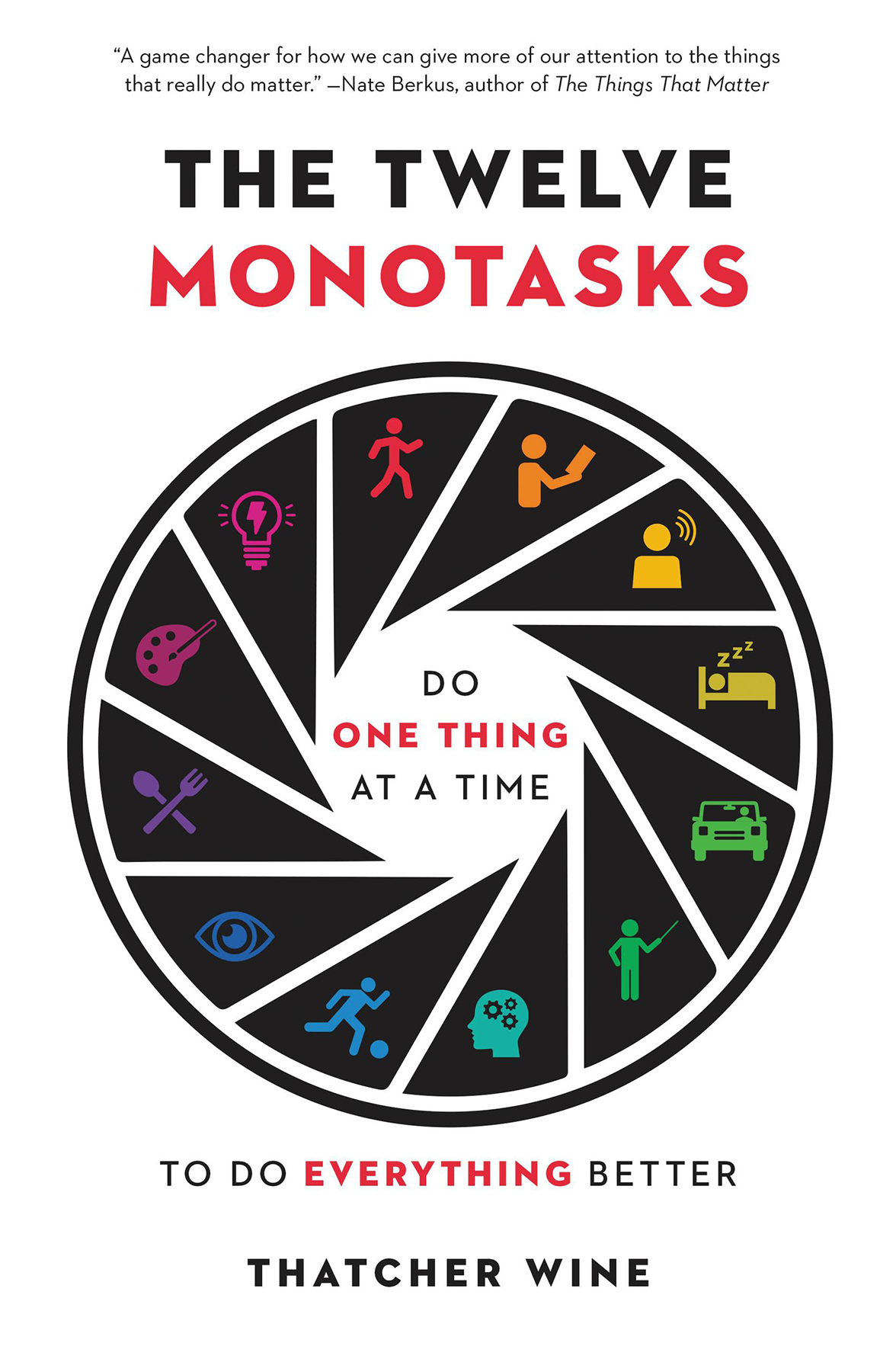I was deep into researching and writing this book in March 2020 when the coronavirus pandemic arrived in the United States. The world was thrown into chaos overnight and life was intense for just about every person on the planet.
Yet with all the craziness, I felt strangely calm. Its not that I wasnt scared. I was worried about my healthI had gone through cancer treatment two years earlier, which put me in a high-risk group if I were to catch the virus. I was concerned about my familys safety and well-being. I was also stressed about Juniper Books, the business I run, and our ability to survive an economic downturn.
I considered furloughing my team and putting the business into hibernation while I concentrated on keeping myself and my family safe and healthy. In recent years, I had worn myself down as I pushed through multiple health challenges, business struggles, and a divorce while keeping up a busy life as an entrepreneur and father. Maybe this crisis was differentI wondered if I should take a break and not try to do it all this time.
I also briefly considered putting this book on hold. My schedule was packedcould I really fit one more big thing on my to-do list?
I thought a lot about it, then I decided to go a different route.
Even though there were a lot of things that were out of control in the world, what I realized was that I was still in control of my attention and I could choose to apply it where I wanted. I decided to double down on my commitment to monotasking everything in my life. I would do one thing at a time, and Id do it well. In the chaotic stressful times of the pandemic, I would pressure-test the concepts covered in these pages in order to get them ready to share with the world.
Throughout the pandemic, I read printed books to build my focus. I walked three times a day to get fresh air. I worked on my listening skills with my friends and family. I wasnt sleeping well, but I committed to finding ways to get more sleep every night. I didnt have a lot of time for meals, but as I ate, I contemplated how grateful I was for essential workers on the front lines. I couldnt travel, but I paid attention to things I had never noticed on my way to work. I relearned how to play piano at home by watching YouTube videos. In our daily company calls, I taught my team how to get our work done from home. I made time to play with my kids and with my dog. I created new ideas for my business every daysome worked, some didnt. I spent a lot of time thinking about what lay ahead and how to help keep everyone in my life safe.
My efforts to monotask were successful. If I tried to do more than one thing at a time during the pandemic, my stress level increased rapidly, and I rarely got anything done. In contrast, when I held the line, stayed focused, and monotasked, I was more relaxed and much more productive. My family stayed healthy, and I was able to finish writing this book. Plus, Juniper Books thrived as people read more books and redecorated while staying at home.
Now, more than ever, I believe that the antidote to our ever-expanding to-do lists, the distractions of modern life, and the fragmentation of our attention is to do one thing at a time. Once we realize that we are the ones who control our own attention, we can choose where to apply it. Monotasking is all about reclaiming our attention so that we can better work through our to-do lists, improve our relationships, and get through some very difficult times.
I n recent years, the lives we live seem to be getting busier and busier. Technology has increasingly made its way into every part of our existencenearly everyone has powerful smartphones in their hands, pockets, or somewhere close. Economic and societal pressure has increased the need, or at least the perception, that we should always be doing and striving for more.
Like many people, Ive tried over the years to counterbalance the busy-ness and stress of adult life with practices such as meditation, mindfulness, and yoga. I love these practices, but quite often, making time to meditate and go to yoga is challenging. When Im super busy and need to get a lot of stuff done, being reminded to meditate can be annoyingeven if meditating will help (which of course it will, but its hard to recognize that in the moment).
As a result of the tension between a busy schedule, a busy mind, and all the stress-relieving and self-improvement activities I want to do, these practices have at various times made me feel like Im simply not very good at themor that Im not good at making the time they require. I started to wonder if there was another way to live a balanced life that could be practiced while we go about our daily activities, not something that was separate from them.
When I looked back at when I have been the most successful and happiest in life, I saw a common thread. It was when I did one thing at a time and really paid attention to what I was doing and who I was with. It was not when I tried to do it all at once or when I was distracted and only partially present. Even going through difficult timescancer, divorce, closing a businesswhen I gave those experiences my full attention, I made it through as well as one could possibly ask for.
To be less stressed, happier, and more productive in life, I determined that I didnt need to go on a retreat, I didnt need to find a guru, and I certainly didnt need to keep adding to my to-do list.
The book you hold in your hands started with the epiphany that if I gave my full attention to one thing at a time, I could do it well and I could enjoy it more. I needed to stop multitasking and start monotasking.
Now, if monotasking were as easy as just telling you to go do one thing at a time instead of multitasking, this would be a short and not very effective book.
The truth is, monotasking muscles need to be trained and strengthened. Our constant state of busy-ness and attempted multitasking have caused these monotasking muscles to atrophy, making it likely we will become distracted by the sound of one more notification or the need to respond to one more email. With strong monotasking skills, you can identify potential pitfalls and actively avoid them.



